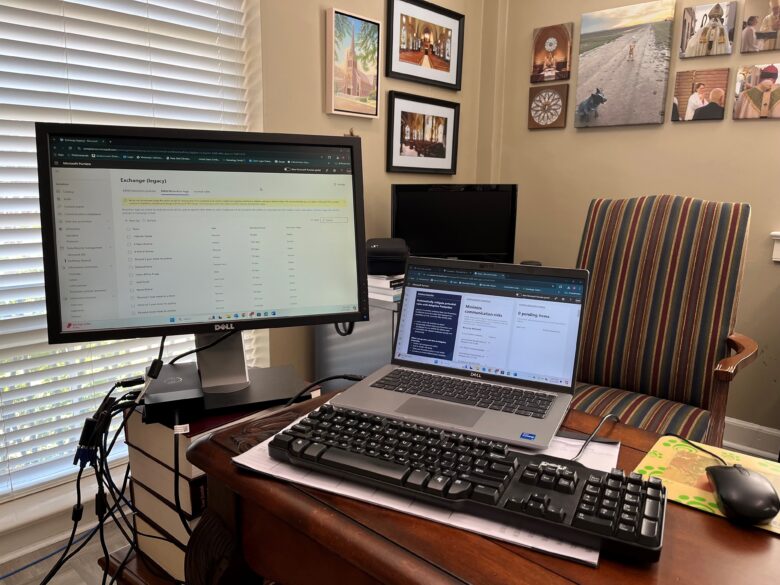From the Archives
By Mary Woodward
These articles from the archives are normally filled with items from the historical archives of the diocese. Often shared are events and stories from past bishops and some of their interesting encounters during their tenures here in Mississippi.
This week I am focusing on another aspect of my role as chancellor and archivist for the diocese – records management. Be warned this will be a little dry and technical, but that can be the life of a chancellor.
Each office in the diocese produces a lot of information and documents. Categorizing these as actual records and determining the life cycle of each type of document and piece of information is the work of a trained records manager.
So, part of my responsibilities is working with various offices to determine what information they produce, sifting the information into records and non-records, then designing a schedule of retention for those documents deemed to be records.

The Association of Records Managers and Administrators (ARMA) defines records as “Any recorded information, regardless of medium or characteristics, made or received and retained by an organization in pursuance of legal obligations or in the transaction of business.” More simply put for the chancery, a record is any piece of content (physical or electronic) created, received, or managed by the organization that is necessary to perform church ministries and activities.
Organizing these records in a basic user-friendly system that meets all levels of standards is the goal of any records manager. Managing paper records has become easier except for when there are space constraints. We have a small building on chancery property where we are storing many of these paper records, but we are methodically digitizing a lot of that paper in order to create space.
Electronic records, including email, are a beast unto themselves. Here at the diocese, we are developing a way to manage electronic or digital records by using a software platform we already have in place. We looked at a new system with lots of bells and whistles but none of those bells or whistles seemed to work with our types of records, so we started exploring what we had and how we could use that platform to create a basic electronic records management system (ERMS).
As chancellor I participated in an intensive training of the developing application that will be used specifically to adapt our retention schedules to a digital file plan that will have tags and labels for our various records in chancery offices. The main objective is to make it manageable and easy to use for our staff so that they will use it productively and efficiently.
In an effort to get email inboxes organized more intentionally, in January I began telling senior staff at department meetings that on August 1, I would be purging all inboxes of any email older than 90 days. An inbox with minimal emails sitting in it helps keep the email system moving faster.
Moving emails to designated folders such as “Bishop,” “Parishes,” “Schools,” etc. filter and sort potential records into a better filing system. Instructions on how to set up these folders in email accounts similar to their document libraries were given at various times leading up to August 1.
As Purge Day approached many questions began to be asked on how to properly create folders and move important emails into them from the inbox. Staffers were real troopers and did a fine job even if all they did was copy their entire inbox of 40,000 emails to a backup folder so they could go through them at a more leisurely pace.
The afternoon of August 1, I used my new training to delve into our data lifecycle management system to apply a “tag” named Inbox 90Day Purge to each of our users’ mailboxes.
It was an interesting feeling to know I may have wiped out thousands of messages going back years for some folks.
Fortunately, there was a 14-day grace period to recover anything that might have been overlooked.
Unfortunately, a second similar tag I had been experimenting with got applied as well. And before I could disable it, it had wiped out a few staffers entire folder systems older than 90 days. Yikes. Fortunately, we had that 14-day grace period.
Unfortunately, all the restored emails came back into the delete folder and not into the nicely organized folders they had created. It was a good time for me to vacate the building for the weekend.
It certainly has been a learning experience, and I look forward to us transitioning to a more collaborative document and record sharing platform among our ministries so that records will be properly managed, and ministries will flourish without the worry of who has what or if the chancellor is going to purge all their files again.
(Mary Woodward is Chancellor and Archivist for the Diocese of Jackson.)
